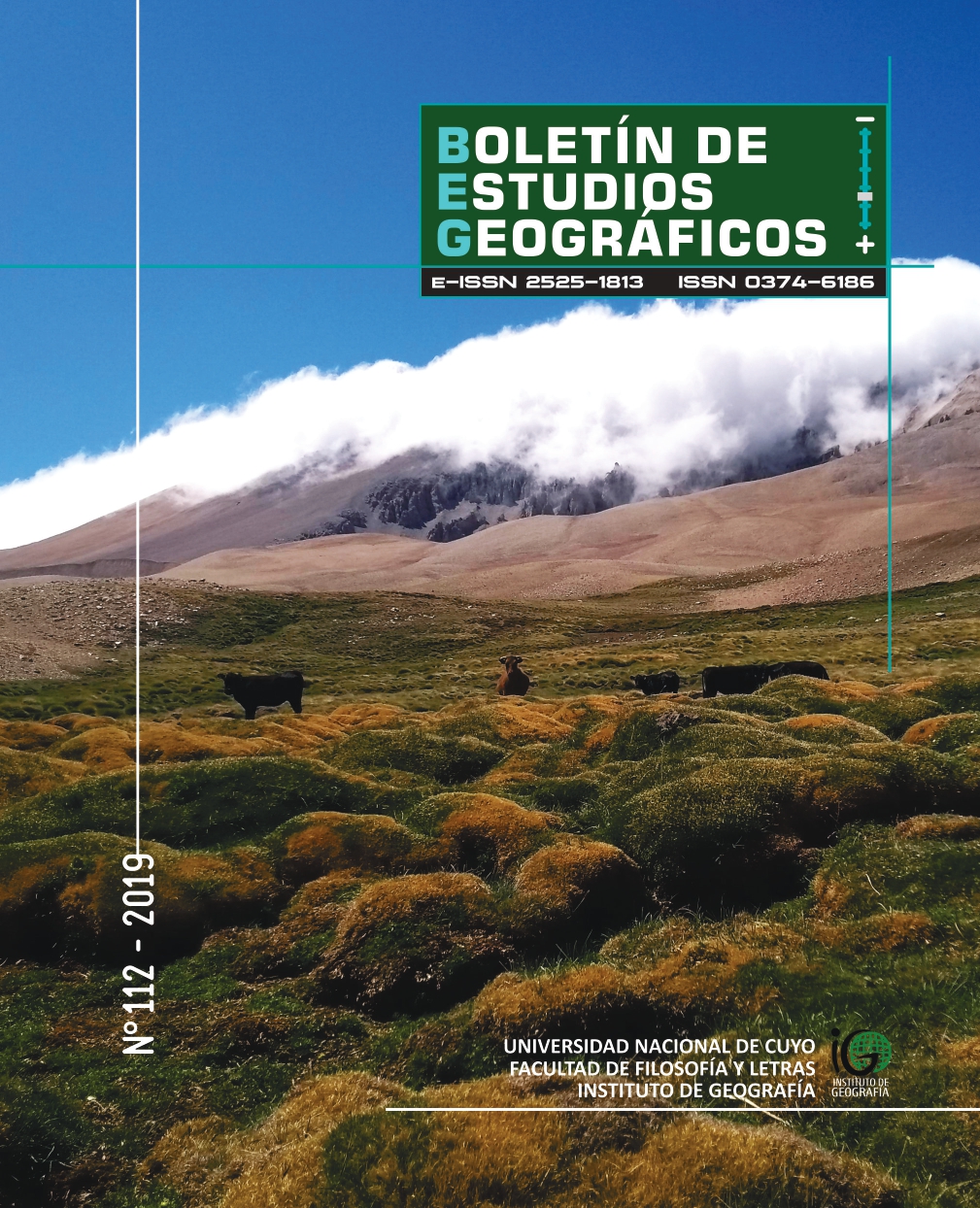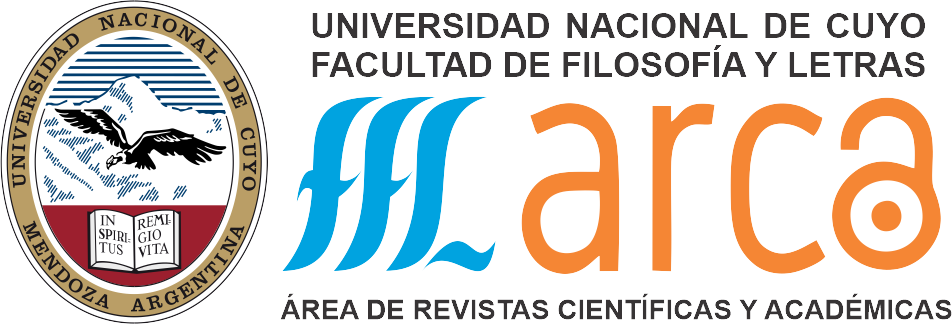The consequences generated by the development of agricultural activities (floriculture) in the health of the people of Isla Grande, Maipú, Mendoza, in the period 2013-2017
Keywords:
floriculture- respiratory diseases-weather conditions-rural population.Abstract
The research carried out is aimed at the study of floriculture, which takes place in the town of Isla Grande, Barrancas district, Department of Maipú; and the link that is generated between this economic activity with respiratory-dermal diseases. In addition, the relationship that may exist between health problems and weather conditions is investigated, since they can influence both directly and indirectly.
To develop the theme in an integral way, the reconstruction of a theoretical model of its own was carried out; from the dimensions proposed by Lalonde, while the macrosocial, political and perceptual structure of the population was taken from the theoretical model of Tarlov. This "new theoretical model" links the basic dimensions of health by assigning a percentage of importance to each of them, without neglecting the macro-social, perceptive population context where the rural population is inserted. We worked with statistical data from the CAPS (Primary Health Assistance Center No. 59), of the Regional Department of Meteorology of the CRICYT, of the D.E.I.E. (Directorate of Statistics and Economic Research) and with the information provided in the surveys and interviews, conducted during field trips.
References
Aguado, L., y Alonso, M. (2014). La floricultura y sus riesgos. Seguridad y salud en el trabajo (80), 38-57. Recuperado de: https://www.fundacionmapfre.org/documentacion/publico/i18n/catalogo_imagenes/imagen_id.cmd?idImagen=1093212.
Beceyro, C. y Aguilar Álvarez, C. (2016). Aspectos territoriales de la oferta-demanda de servicios de salud en el Departamento Maipú (Mendoza), 2012-2015. Boletín de Estudios Geográficos (106) pp 65-90. Recuperado de: http://www.bdigital.uncuyo.edu.ar/8811
Beceyro, C. et. al. (2018.) Riesgos en la salud asociados a la floricultura. El caso de Isla Grande, Maipú, Mendoza. Informe Preliminar. En Huellas y Perspectivas, Actas XII Jornadas Cuyanas de Geografía, Mendoza. Recuperado de: https://bdigital.uncu.edu.ar/objetos_digitales/11483/actas-xiijornadascuyanasdegeografia.pdf.
Carrió, C. (2015). Centro de Salud Nº 59 Isla Grande.Trabajo final presentado para Competencias en Gestión Interdisciplinaria de Servicios Latinoamericanos de Atención Primaria de la Salud, Centro de Estudios Interdisciplinarios, Universidad Nacional de Rosario.
INDEC (2010), Censo Nacional de Población, Hogares y Viviendas 2010. Argentina: Ministerio de Economía.
Lalonde, M. (1974). A new perspective on the Health of Canadians. Ottawa: Minister of Health of Canada.
López, B. (2010). Análisis de diagnóstico del sector florícola de Mendoza, Mendoza: Fundación IDR.
Instituto de Desarrollo Rural (2013) Censo Provincial de productores de flores. Actualización 2013. Mendoza, Recuperado de: http://www.idr.org.ar/wp-content/uploads/2013/09/ACTUALIZACION_CARACTERIZACI%C3%93N-DEL-SECTOR-FLOR%C3%8DCOLA-2014.pdf
OMS (2011), Aumentar el acceso al personal sanitario en zonas remotas o rurales mejorando la atención. Recomendaciones mundiales de política, Francia: Atelier Rasmussen, Recuperado de: http://whqlibdoc.who.int/publications/2011/9789243564012_spa.pdf?ua=1
Otras fuentes de información
Entrevista realizada a la Dra. M. Cecilia Carrió en el Centro de Atención Primaria de Salud Nº 59. Isla Grande. Fecha: 11/05/2017.




















